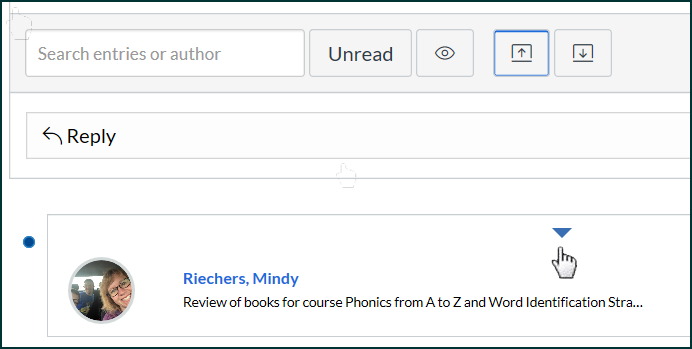Discussion Posts: Is there a point?
October 7, 2020
The transition to mostly online classes has come with a wide variety of ups and downs, but I believe the lowest low has to be the increased reliance on Canvas discussion posts.
The newfound prominence of these discussion boards is a lackluster addition to the online learning experience because it fails to provide content or discussions that are actually beneficial.
In other words, not much learning goes on in the discussion boards.
But why does no learning go on? Whose fault is it? Is there a solution?
The main reason I believe that these discussion boards are rarely successful is because there is not much incentive to put effort into it.
The discussion posts are usually just factored into your overall grade in the “participation” section, which usually also includes attendance, so the posts do not carry very much weight.
This, combined with the fact that it is hard to get invested in online classes in general, makes it hard for students to see measly discussion posts as something that they should spend substantial time on.
This mentality then leads to low-effort and perfunctory posts made just to make sure that you don’t lose points, rendering the whole assignment uninformative.
Even worse, however, are the requirements to respond to classmates posts. This is the section that is even more meaningless, as most of the students respond with the likes of; “I agree with that point that you made! I also believe that…”
Forcing students to respond to already uninspired posts is no way to generate fruitful discussion.
The main counterpoint to my argument here is that the discussions are only as beneficial and worthwhile as the students participating choose to make it. While this is true, I don’t see how the students are supposed to be invested in a task that almost begs to have low effort be put into it.
The fact that the posts are rarely graded on quality, accompanied with the sense that nobody actually cares about what you are writing, makes it hard for students to view a discussion post as a thing of relevance.
I do not believe that it is reasonable to expect discussion boards to be a legitimate learning tool in an online class.
Discussions can be absolutely great and genuinely aid students’ understanding of the material when done in an in-person class, but this is not replicable when every member of the class is separated by a screen.
Similar to how online lectures seem so much less engaging than in-person ones, online discussions fail to capture the impact of its counterpart. This is due to factors such as the amount of distractions available to students and the overall feeling of disconnect that is present in an online learning environment.
That being said, I would also like to make it clear that this is not a failure on the part of the professors. They have probably enjoyed the circumstances of this semester just as little as the students have, and they are doing everything in their power to accommodate for these unfortunate circumstances.
In terms of suggestions on how to improve this, I will not pretend to have a perfect solution.
I would not be sad to see these discussion posts removed entirely, but I still believe that discussion in general should be part of a class.
This may not be the most popular opinion, but I believe that it would serve the class better to hold discussions instead of relying on discussion boards. While the mention of having to talk in front of/to a class sends shivers down the spines of many, including my own, it might just be a superior alternative.
Whereas productive conversation rarely sprouts from discussion boards, live discussions at least have the propensity to be useful.
A live discussion would be an improvement because the live setting would encourage students to actually share meaningful thoughts in the moment due to the fact that you know people are actually listening and paying attention to what you are saying and that you can get immediate, unforced feedback.
Live discussions would most likely be more useful because they are more emulative of real class discussions, which are usually successful.














